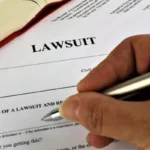Landlord Tenant Law governs the relationship between landlords and tenants. It covers many aspects of renting, including the rights and responsibilities of both parties regarding security deposits, leases, repairs, evictions, subletting and more. Understanding Landlord-Tenant Law can help ensure that both landlords and tenants comply with their legal obligations.
Eminent domain is a power that is granted to governments, allowing them to take private property for public use. The government must pay the fair market value of the property taken, but that doesn’t always make it easier for the property owner who has been displaced. It can be an incredibly stressful and sorrowful experience.
At the Law Offices of Brian P. Kowal, P.A., we understand how unsettling it can be when someone’s rights are taken away from them. That’s why we strive to help property owners in Florida protect their rights while dealing with eminent domain and other Landlord Tenant Law issues. We have a team of experienced attorneys dedicated to helping clients navigate through this difficult process so they can receive just compensation for any land or property that is taken from them.
Our attorneys will explain the laws surrounding eminent domain and help clients understand what their rights are as property owners in Florida. We believe it’s important for people to know their rights when it comes to Landlord Tenant Law and how they can protect themselves if their property is at risk of being taken away. We also have a deep understanding of the criteria for fair market value compensation set by the government, so we can make sure our clients receive just compensation for any land or property taken from them.
We provide comprehensive legal support throughout all phases of eminent domain proceedings. Our experienced team of lawyers will review all documents related to the case thoroughly, identify areas of concern, and ensure our clients are being treated fairly and offered just compensation for their property. Contact us today for more information.
What Is The Process Of Eminent Domain?
 Eminent domain is a process that allows the government to take private property for public use. The government must compensate the owners of the property with fair market value, but certain criteria must be met for the seizure of private property by eminent domain to occur.
Eminent domain is a process that allows the government to take private property for public use. The government must compensate the owners of the property with fair market value, but certain criteria must be met for the seizure of private property by eminent domain to occur.
1. The taking of the property must first be authorized by a specific law or power of eminent domain granted by the state.
2. The taking must be for public use, such as to build infrastructure or provide housing. The government must prove that this is a legitimate public necessity and that there are no alternatives to using private property for the project.
3. Before any action is taken, the property must be appraised to determine its fair market value.
4. The property owner must be given written notice of the government’s intent to seize the property by eminent domain and allowed to negotiate a settlement. If no agreement can be reached, the government may proceed with its plan.
5. Once it is determined that appropriate compensation has been made, a court order will be issued authorizing the taking of the property.
6. The property owner may challenge the court order in an appeal process, but if the court upholds its decision, the government can take legal possession of the land or building.
7. Finally, compensation must be paid to the former owners of the property for their loss. This amount should equal or exceed what would have been obtained in open market sales of the property.
Eminent domain is a complex process that can take months or years to complete, depending on how many challenges are made by the owners of the property. Nevertheless, it is essential that any taking is done legally and with due respect to the rights of the property owners. The government must ensure that all necessary steps are taken to ensure that the process is fair and just.
What Are Florida’s Laws On Eminent Domain?
 In Florida, landlords and tenants are subject to the laws of eminent domain. Landlords may take advantage of a tenant’s rights under these laws if they intend to develop or use the property for public purposes such as roads, highways, power lines, schools, or other public works projects. If the landlord can demonstrate that their proposed construction project serves an important public purpose, they may take the property away from the tenant with just compensation for their losses.
In Florida, landlords and tenants are subject to the laws of eminent domain. Landlords may take advantage of a tenant’s rights under these laws if they intend to develop or use the property for public purposes such as roads, highways, power lines, schools, or other public works projects. If the landlord can demonstrate that their proposed construction project serves an important public purpose, they may take the property away from the tenant with just compensation for their losses.
To protect tenants against eminent domain abuse, some cities and counties in Florida have laws that require landlords to provide notice of intent to use eminent domain before taking any action. Additionally, courts may award tenants damages if they can prove that the landlord’s actions were unjustified or exceeded the scope of their eminent domain rights. Landlords should familiarize themselves with Florida’s laws on eminent domain before attempting to take a tenant’s property, as any failure to comply could lead to serious legal repercussions.
These laws are designed to protect tenants from being unfairly displaced and ensure that they receive just compensation for their losses in such cases. The laws can help landlords and tenants resolve disputes over eminent domain without resorting to legal action. However, if a tenant feels that their rights have been violated, they may pursue legal action in court to seek damages or other relief from the landlord. Those considering filing such an action should consult with an experienced real estate attorney for advice and assistance. Landlords must understand their rights and responsibilities under Florida’s laws on eminent domain to ensure that they do not inadvertently run afoul of the law. Understanding these laws can help both landlords and tenants resolve disputes amicably while avoiding costly legal action.
By understanding Florida’s rules on eminent domain, landlords and tenants can better protect their interests and avoid legal disputes. Familiarizing themselves with the law can help landlords ensure that they do not abuse a tenant’s rights in any way, while also allowing tenants to understand their rights if faced with eminent domain issues. In either case, consulting our experienced real estate attorneys can provide added protection and advice on how to best proceed under these laws. With a clear understanding of their rights and responsibilities, landlords and tenants can better protect themselves in any eminent domain situation.
At The Law Office of Brian P. Kowal, PA, our Florida Landlord-Tenant attorneys have the experience and knowledge to help you understand your rights as a landlord or tenant to protect your interests. Our attorneys are available 24/7 to discuss any issue related to landlord-tenant law that you may be facing. Whether it is a dispute over a leased property, a dispute over rental fees or deposits, or any other legal matter, our attorneys will be able to provide the advice and representation that you need. Call us at 754-203-6489 for representation.






